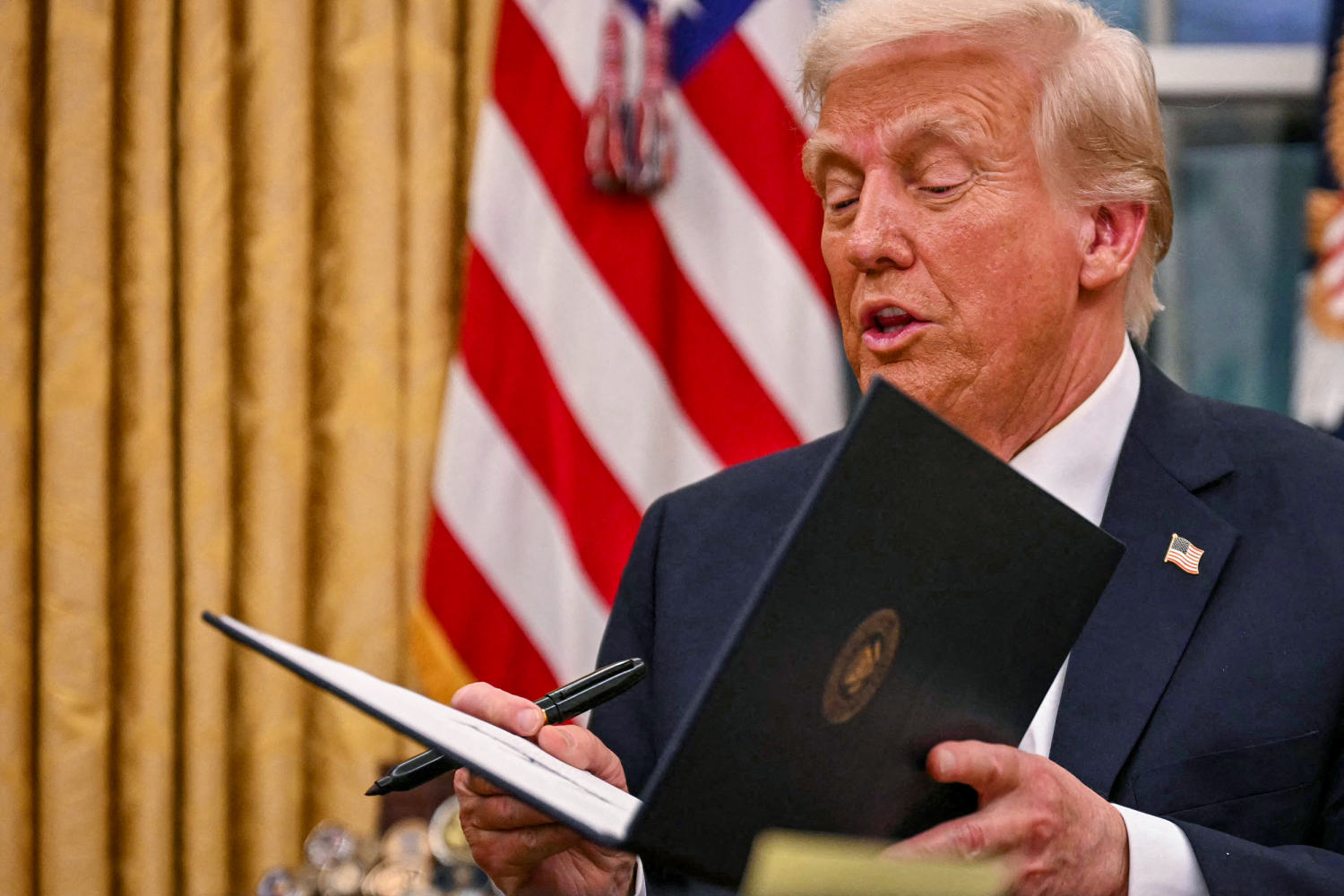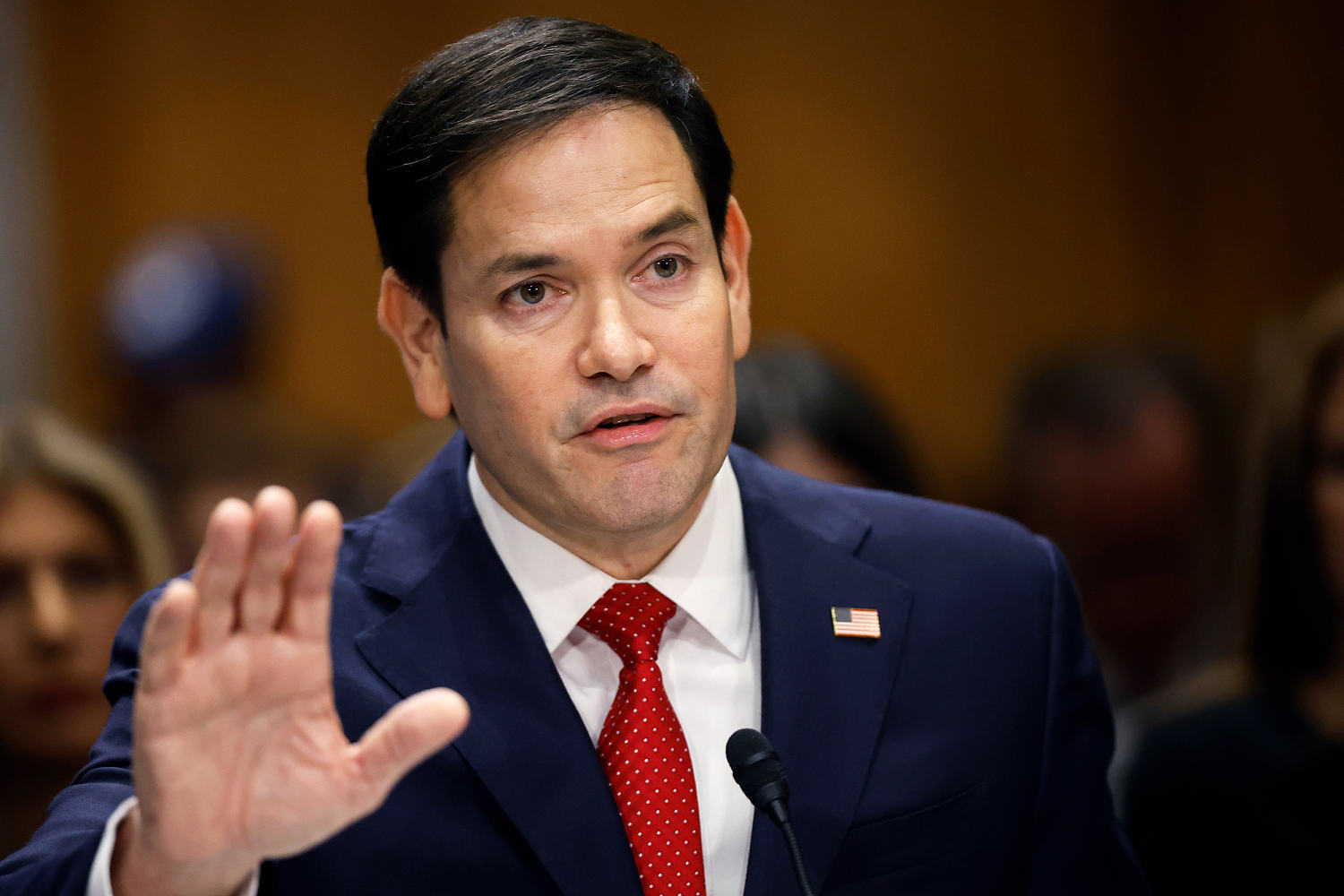The crucial importance of Trump’s pick for ambassador to Hungary

President Trump’s unorthodox Cabinet selections, such as Pete Hegseth for secretary of Defense and Robert F. Kennedy Jr. for secretary of Health and Human Services, have dominated news headlines and social media debate. Yet one appointment not yet determined is Trump’s ambassador to Hungary — a nation whose capital, Budapest, is renowned for its fairytale charm, but whose political reality is anything but idyllic.
This decision might seem like a mere diplomatic footnote, but it is far more important. The nomination for ambassador to Hungary will ultimately signal Trump’s vision for American foreign policy and the future of conservatism.
To those unfamiliar with Hungarian Prime Minister Viktor Orbán and his government, America’s relationship with this small Eastern European country may appear insignificant. But the Orbán government and the “postliberal” philosophies promoted by leading Hungarian conservatives have considerable influence on the American right. Their ideas are far out of step with the core pillars of small-government conservatism.
Hungary has recently diverged from neighbors like Austria and Croatia by rejecting traditional tenets of liberal democracy and individual liberty. Criticizing classical liberalism — defined by limited government, free markets and civil liberties — as failing the family and Western civilization, Hungary’s postliberals advocate for a stronger government to enforce right-wing social views. Supported by American academics, including Notre Dame political philosopher Patrick Deneen and Harvard Law professor Adrian Vermeule, these ideas have permeated the U.S., turning this philosophy into political action through the national conservative movement.
The infusion of Orbánism into America’s new right can be seen in the meteoric rise of Vice President JD Vance, from first-time author to just one heartbeat from the presidency. Vance has spoken at various national conservative conferences and joined Deneen to discuss liberal “regime change” with the Intercollegiate Studies Institute. The most recent national conservative conference featured an interview with Orbán himself. Due to his life story, the new vice president associates himself with this coalition, particularly on issues of family and industrial policy.
While Vance and his supporters praise Orbán’s pro-childrearing tax policies and anti-immigrant rhetoric, they miss the darker, authoritarian tendencies at the helm in Budapest and within these new strains of conservatism. The Hungarian government holds troubling ties with autocratic regimes in Moscow, Beijing and Tehran. At home, the Orbán government has undermined judicial independence and media freedom with laws expanding regulatory oversight and “enforcing numerous vaguely worded provisions affecting all print, broadcast, and online media, including providers and publishers,” according to a report from the democracy nonprofit Freedom House. Nevertheless, America’s national conservatives and postliberals portray Hungary as a conservative success story.
This blind optimism is far off the mark. While Orbán’s government has attempted to boost family formation through tax benefits and marriage support, Hungary’s fertility rate has grown slowly and lags since an early 2010s spike. Likewise, Hungary falls far below its neighbors in religiosity, despite the Orbán government’s attempts to prop up the Catholic church through government funding. What seems like the ideal conservative model for national governance is, in reality, a fantasy land.
Hungarian conservatism, centered on centralized authority and state intervention, contrasts sharply with American conservatism’s focus on limited government, free markets and individual rights. It adopts a more authoritarian approach, resembling progressives’ top-down policies but with a Christian social-conservative emphasis. Prioritizing cultural uniformity, Hungarian conservatism often promotes exclusionary policies, suppressing pluralism and dissent.
This stances can leave Hungary uncomfortably aligned with Russia and other dictatorships. Biden’s ambassador to Hungary, David Pressman, repeatedly condemned the Orbán government for laws that ban the display and promotion of homosexuality, anti-American messaging and cozying up with Moscow. A nation that aligns with the our greatest adversaries and undermines civil liberties should give otherwise hawkish American conservatives cause for concern.
But Pressman’s replacement might not be so bold. Rumors suggest Bryan Leib, a former congressional candidate and CEO of Henry Public Relations, will replace Pressman as ambassador to Hungary. Leib has publicly criticized the sitting ambassador, deeming his sharp statements against Orbán’s foreign policy and undemocratic domestic policies as “activism” rather than diplomacy. Much like Vance and America’s national conservatives, Leib described Hungary as a model for conservatives worldwide and seeks to build a close relationship between Orbán and the Trump administration.
Whether Trump makes Leib’s Danube dreams come true remains to be seen. Nonetheless, the selection will be pivotal in revealing the president’s alignment in the American conservative schism and where he hopes the GOP will go in 2028.
America’s relationship with Hungary stands as a test case for how the new administration will address illiberal nations and where the president’s global priorities lie. With countries across the world undergoing historic changes in government — from the collapse of the Assad regime to Javier Milei’s revolutionary economic policies in Argentina — Trump will face pivotal choices for the future.
If personnel is policy, then the U.S. ambassador who spends the next few years in Budapest will shape American positioning in these critical junctures. This is a “reading of the tea leaves” for the coming years of American conservatism. The next ambassador to Hungary won’t just set diplomatic policy — he or she will help determine whether the traditions of American conservatism continue.
Sam Raus, a recent graduate of the University of Miami, is a Tech and Consumer Freedom Fellow with Young Voices.
-

Trump picks former fast-food chain CEO Andrew Puzder for EU ambassador
President Trump has selected Andrew Puzder, a former fast-food chain CEO who he attempted to install in his first White House Cabinet, as his pick for ambassador to the European Union. Trump ...The Hill - 1d -

3 of the Most Important Trump Executive Orders on Climate
President Trump’s wave of executive orders yesterday sent an undeniable signal to the world about the United States’ role in fighting climate change.The New York Times - 3d -
Former U.S. ambassador to Israel on the "Trump effect" that impacted the ceasefire deal
Israel and Hamas have agreed to a ceasefire and hostage release deal after 15 months of deadly combat in the region. Edward Djerejian, former U.S. ambassador to Israel, joins "The Daily Report" to ...CBS News - Jan. 15 -

Meet the Cabinet: What to know about Elise Stefanik, Trump’s pick for U.N. ambassador
President-elect Donald Trump has chosen Rep. Elise Stefanik (R-N.Y.) to serve as U.S. ambassador to the United Nations. NBC News campaign embed Alex Tabet takes a look at Stefanik's career and how ...NBC News - Jan. 15 -

Rahm Emanuel steps down as Japan ambassador ahead of Trump inauguration
President Biden’s ambassador to Japan, Rahm Emanuel, will leave his position in Tokyo on Monday and return to the U.S., a traditional changing of the guard ahead of the swearing-in of a new ...The Hill - Jan. 12 -

Trump announces new ambassador, Justice Department, VA nominees
President-elect Trump announced on Thursday his latest batch of presumptive nominees to serve in his forthcoming administration. Trump announced his pick of Christine Jack Toretti, Pennsylvania’s ...The Hill - Jan. 10 -
Trump reportedly considering important alteration to tariff plans
President-elect Donald Trump is considering a plan that still would apply tariffs to all nations but narrow the impact.CNBC - Jan. 6 -
Trump’s shadow looms over Hungary and Poland
Dealing with the next US administration will test Warsaw as it replaces Budapest in the EU’s rotating presidencyFinancial Times - Jan. 4 -

Trump announces new treasury and ambassador nominees
President-elect Trump announced several appointments for his Treasury Department and choices for ambassadors for two European countries. In multiple Thursday Truth Social posts, Trump outlined who ...The Hill - Jan. 3
More from The Hill
-

Another Jan. 6 rioter rejects Trump's pardon: 'I did those things'
Another Jan. 6 rioter has rejected President Trump’s pardon, saying that he “did those things” and his actions do not merit forgiveness. “It's almost like he was trying to say it didn't happen. ...The Hill - 56m -

Anti-RFK Jr. ads target GOP senators
Click in for more news from The Hill {beacon} Health Care Health Care The Big Story Anti-RFK Jr. ads target GOP senators A progressive nonprofit is ramping up its campaign to convince senators ...The Hill - 1h -

Trump, Newsom enjoy friendly greeting, suggest they can work together
President Trump greeted California Gov. Gavin Newsom (D) with a very friendly exchange when he landed in the Los Angeles area to survey wildfire damage, after the two have sparred over relief ...The Hill - 1h -

Live updates: Trump, Newsom enjoy friendly greeting as president lands in California
President Trump enjoyed a friendly greeting with California Gov. Gavin Newsom as he landed Friday evening in California to view the devastation from the greater Los Angeles wildfires. The two ...The Hill - 1h -

Trump halts new renewables on public lands
{beacon} Energy & Environment Energy & Environment The Big Story Trump pauses renewables approvals on public land, water The Trump administration is pausing approvals for new renewable energy ...The Hill - 1h
More in Politics
-

Jan. 6 prosecutors describe 'shocking,' 'guttural' week after Trump's pardons
WASHINGTON — Federal prosecutors in the now-disbanded Capitol Siege Section of the D.C. U.S. attorney's office spent much of the last four years prosecuting cases against Jan. 6 rioters.NBC News - 13m -

Secretary of State Marco Rubio orders halt to almost all U.S. foreign aid
The directive follows President Donald Trump’s executive order Monday pausing new obligations and disbursements of foreign aid pending review.NBC News - 21m -

In hurricane-ravaged North Carolina, Trump suggests that FEMA should be overhauled or shut down
On a visit to a North Carolina neighborhood destroyed by Hurricane Helene, President Trump was highly critical of FEMA, suggesting it should be shut down. Trump arrived late Friday in Los Angeles ...NBC News - 53m -

Another Jan. 6 rioter rejects Trump's pardon: 'I did those things'
Another Jan. 6 rioter has rejected President Trump’s pardon, saying that he “did those things” and his actions do not merit forgiveness. “It's almost like he was trying to say it didn't happen. ...The Hill - 56m -

Secretary of State Rubio orders U.S. to immediately stop almost all foreign aid
Secretary of State Marco Rubio ordered an immediate stop to the flow of almost all U.S. foreign assistance, pending a review, according to an internal State Department cable obtained by NBC News. A ...NBC News - 1h